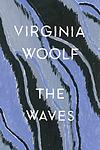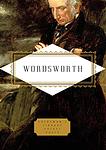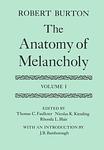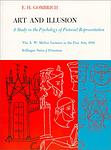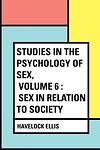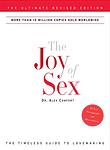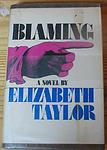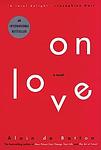The Greatest British "Psychology & Mental Health" Books of All Time
Click to learn how this list is calculated.
This list represents a comprehensive and trusted collection of the greatest books. Developed through a specialized algorithm, it brings together 300 'best of' book lists to form a definitive guide to the world's most acclaimed books. For those interested in how these books are chosen, additional details can be found on the rankings page.
Genres
The "Psychology & Mental Health" category encompasses a diverse range of books that delve into the intricate workings of the human mind, behavior, and the various factors influencing mental well-being. This genre offers readers insights from the fields of clinical psychology, psychiatry, cognitive science, and neuroscience, among others. It includes texts on psychological theories, research findings, therapeutic techniques, and personal mental health journeys. Whether it's exploring the depths of human consciousness, understanding the impact of mental disorders, or learning strategies for improving emotional health, this category provides valuable resources for professionals, students, and anyone interested in the complexities of the psyche and the pursuit of mental wellness.
Countries
Date Range
Reading Statistics
Click the button below to see how many of these books you've read!
Download
If you're interested in downloading this list as a CSV file for use in a spreadsheet application, you can easily do so by clicking the button below. Please note that to ensure a manageable file size and faster download, the CSV will include details for only the first 500 books.
Download-
1. Frankenstein by Mary Shelley
This classic novel tells the story of a young scientist who creates a grotesque but sentient creature in an unorthodox scientific experiment. The scientist, horrified by his creation, abandons it, leading the creature to seek revenge. The novel explores themes of ambition, responsibility, guilt, and the potential consequences of playing God.
-
2. Tom Jones by Henry Fielding
This classic novel tells the story of Tom Jones, a charming and good-hearted but impulsive young man, who is expelled from his adoptive family home due to his wild behavior and love for the beautiful Sophia Western. His journey through 18th-century England is filled with adventures, misadventures, and a colorful cast of characters, as he struggles with his identity and seeks redemption. The narrative explores themes of class, virtue, and morality, and is known for its humor, social satire, and vivid characterization.
-
3. The Mayor of Casterbridge by Thomas Hardy
The Mayor of Casterbridge is a tragic novel set in the fictional town of Casterbridge, based on Dorchester in the English county of Dorset. The story follows the life of Michael Henchard, a skilled hay-trusser who, in a fit of drunken anger, sells his wife and daughter at a fair. When he sobers up, he is filled with regret and swears off alcohol for 21 years. He works hard and eventually becomes a successful businessman and the mayor of Casterbridge. However, his past returns to haunt him when his wife and daughter come back into his life, leading to a series of events that result in his downfall.
-
4. The Adventures of Oliver Twist by Charles Dickens
This classic novel follows the life of a young orphan named Oliver Twist, who endures a miserable existence in a workhouse and then is placed with an undertaker. He escapes and travels to London where he meets the Artful Dodger, a member of a gang of juvenile pickpockets led by the elderly criminal, Fagin. Despite numerous adversities, Oliver remains pure at heart and is eventually saved from a life of crime, revealing his true identity and claiming his rightful inheritance.
-
5. The Waves by Virginia Woolf
"The Waves" is a novel that follows the lives of six friends from childhood to old age, using an innovative narrative style that intertwines their individual voices into a collective stream of consciousness. The novel explores themes of individual identity, the passage of time, and the human condition, presenting a unique and poetic meditation on the nature of life and death.
-
6. The Rainbow by D. H. Lawrence
The novel explores the lives of three generations of a farming family, the Brangwens, living in rural England in the late 19th and early 20th century. The narrative primarily focuses on the sexual and emotional maturation of Ursula Brangwen, a young woman who rejects traditional societal norms in her quest for spiritual fulfillment and personal independence. The book is known for its vivid depiction of the English countryside and its frank portrayal of sexual desire.
-
7. Satanic Verses by Salman Rushdie
The novel follows two Indian actors who miraculously survive a plane explosion, and as a result, find themselves embodying good and evil. As they navigate their new identities, the story also delves into the life of a prophet and his creation of a new religion in a city of sand. The narrative is a blend of fantasy and reality, exploring themes of identity, religion, and the immigrant experience, while also providing a controversial interpretation of Islamic faith and the life of Prophet Muhammad.
-
8. The Prelude by William Wordsworth
"The Prelude" is an autobiographical, epic poem that explores the author's spiritual growth and development. The narrative takes the reader through the poet's childhood and youth, his experiences in the French Revolution, and his subsequent disillusionment. It also delves into his relationship with nature, which he sees as a powerful, spiritual force that has shaped his life and consciousness. The poem is a reflection on the poet's personal journey towards understanding his own mind and the world around him.
-
9. The Man Who Mistook His Wife for a Hat by Oliver Sacks
The book is a collection of clinical tales about patients suffering from a variety of neurological disorders. The author, a neurologist, shares his experiences with these patients, whose conditions range from common ailments like amnesia and aphasia, to rare disorders like visual agnosia and Tourette's Syndrome. The stories are both compassionate and insightful, revealing the complexities of the human brain and the resilience of the human spirit, even in the face of debilitating illness.
-
10. The Curious Incident of the Dog in the Night-time by Mark Haddon
This novel follows a 15-year-old boy with autism as he tries to solve the mystery of who killed his neighbor's dog. Along the way, he uncovers other secrets about his family and must navigate the world using his unique perspective and abilities. The book offers an insightful look into the mind of a character with autism, highlighting his struggles and triumphs in a compelling and empathetic way.
-
11. The Razor's Edge by W. Somerset Maugham
"The Razor's Edge" is a novel that explores the life of a young American, Larry Darrell, who rejects conventional society to search for spiritual enlightenment in the aftermath of World War I. His journey takes him from Illinois to Paris, and eventually to India. The story is narrated by an unnamed author who encounters Larry at various stages of his life, and through his eyes, we see Larry's transformation and the impact it has on the people around him. The novel is a profound exploration of self-discovery, spirituality, and the quest for meaning.
-
12. The Go-Between by L. P. Hartley
Set in the summer of 1900, the novel follows a young boy who visits a friend's family estate and becomes an unwitting messenger in an illicit affair between his friend's older sister and a local farmer. As the boy navigates the complexities of the adult world and the rigid class system of the time, he experiences a loss of innocence that has lasting effects on his life. The narrative explores themes of nostalgia, memory, and the corrupting power of class and wealth.
-
13. The Anatomy of Melancholy by Robert Burton
"The Anatomy of Melancholy" is a comprehensive and detailed exploration of melancholy, a term used to describe a variety of mental states, including depression, anxiety, and sadness. The author examines the causes, symptoms, and treatments of melancholy from a variety of perspectives, incorporating elements of psychology, philosophy, history, and literature. The book is notable for its extensive use of classical sources, its humorous and satirical style, and its profound insights into human nature and the human condition.
-
14. The Art of Memory by Frances A. Yates
"The Art of Memory" is a historical exploration of the ancient art of memory, and its influence on Western culture. The book delves into the memory training techniques used by ancient Greeks and Romans, and traces their evolution and application through the Middle Ages and Renaissance. The author also explores how these techniques influenced the development of philosophy, science, education, and religion throughout history.
-
15. The Horse Whisperer by Nicholas Evans
A devastating horse riding accident leaves a young girl, Grace, and her horse, Pilgrim, physically and emotionally traumatized. In a desperate attempt to heal them both, Grace's mother seeks out a man with a unique gift for communicating with horses. As he works to heal Pilgrim, the horse whisperer also helps Grace and her mother confront their own pain and begin to rebuild their shattered lives.
-
16. A Pale View of Hills by Kazuo Ishiguro
"A Pale View of Hills" is a novel about a Japanese woman named Etsuko, who, after the suicide of her eldest daughter, reflects on her past in post-war Nagasaki. She recalls her friendship with Sachiko, a woman who plans to escape her miserable life by moving to America with her daughter Mariko. The narrative subtly explores themes of memory, guilt, and cultural dislocation while unveiling the complexities of human relationships and the haunting effects of the past on the present.
-
17. Art and Illusion by Ernest H. Gombrich
"Art and Illusion" is a comprehensive study of the psychology of pictorial representation. The book explores how artists from the Renaissance to the present day have used illusions to enhance their work, and how our brains interpret these illusions. It delves into the science behind our perception of reality and how it influences art, providing a unique perspective on the intersection between psychology, philosophy, and aesthetics. The book also discusses the concept of 'schema' and 'correction' in an artist's work, and how the artist's perception of the world is constantly evolving.
-
18. Studies in the Psychology of Sex by Havelock Ellis
This book explores the psychology of sex, delving into a wide range of subjects including sexual inversion, erotic symbolism, sexual impulse in women, and the sexual impulse in men. It also covers the analysis of the sexual instinct, its development in childhood and adolescence, and its manifestations in adulthood. The author uses a scientific approach, drawing on extensive research and case studies to provide a comprehensive understanding of the topic. It's considered a pioneering work in the field of sexology.
-
19. Bad News by Edward St Aubyn
"Bad News" is the second novel in a series that follows the life of Patrick Melrose, a man from a wealthy but deeply troubled family. In this installment, Patrick, now 22, must travel to New York to collect his father's ashes. As he navigates the city, he struggles with his addiction to drugs and alcohol, and grapples with the traumatic memories of his abusive father. The narrative provides a darkly comic and deeply poignant exploration of addiction, trauma, and the struggle for redemption.
-
20. The Joy of Sex by Alex Comfort
This book serves as a comprehensive guide to human sexual behavior, offering detailed illustrations and instructions on various sexual techniques and positions. The author emphasizes the importance of mutual consent, respect, and emotional intimacy in sexual relationships, and promotes a positive and open-minded attitude towards sex. The book also provides advice on sexual health and contraception, making it a valuable resource for anyone seeking to enhance their sexual knowledge and experiences.
-
21. Back by Henry Green
"Back" is a novel about a British man who returns home after being a prisoner of war during World War II. He struggles to adjust to civilian life and is haunted by the loss of his lover, who died while he was away. As he tries to move on, he becomes entangled in a complicated relationship with his lover's half-sister, leading to a poignant exploration of love, loss, and the human capacity for resilience.
-
22. Blaming by Elizabeth Taylor
"Blaming" is a poignant story about a woman named Amy who, after the sudden death of her husband during a holiday, finds herself befriended by an American woman named Martha. Despite their differences, Martha provides Amy with comfort and support, but Amy finds it difficult to accept this kindness due to her reserved and private nature. The novel explores themes of grief, friendship, and the complexities of human relationships, as well as the guilt and blame individuals often place on themselves in times of hardship.
-
23. On Love by Alain de Botton
"On Love" is a philosophical and humorous exploration of the complexities of love, told through a fictional narrative. The protagonist experiences the highs and lows of a romantic relationship, from the initial euphoria of falling in love to the despair of a breakup. The story is punctuated with philosophical musings on love, relationships, and human nature, providing an insightful and thought-provoking examination of one of the most profound human experiences.
-
24. Love's Work by Gillian Rose
"Love's Work" is a deeply personal memoir that explores the life of a renowned philosopher as she grapples with her terminal cancer diagnosis. The book is a profound exploration of love, suffering, and the human condition, as the author reflects on her personal relationships, her career, and her Jewish faith. It is a philosophical and emotional journey that challenges readers to confront their own mortality and the complexities of human life.
-
25. The Power by Naomi Alderman
"The Power" by Naomi Alderman is a speculative fiction novel that imagines a world where women develop the ability to produce electrical shocks from their bodies, giving them a newfound physical power over men. The novel follows the lives of four characters as they navigate this new reality and the societal and political upheaval that comes with it. Through their experiences, the book explores themes of gender, power, and the corrupting nature of authority.
Reading Statistics
Click the button below to see how many of these books you've read!
Download
If you're interested in downloading this list as a CSV file for use in a spreadsheet application, you can easily do so by clicking the button below. Please note that to ensure a manageable file size and faster download, the CSV will include details for only the first 500 books.
Download



